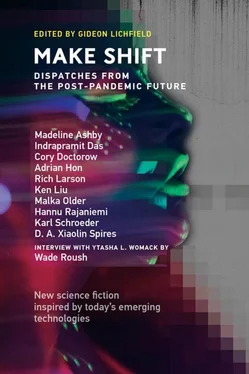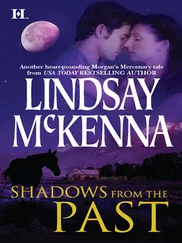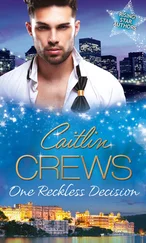MAKE SHIFT
DISPATCHES FROM THE POST-PANDEMIC FUTURE
Edited by Gideon Lichfield
Introduction
Gideon Lichfield
IF YOU LIVED THROUGH THE YEAR 2020, YOU’VE EXPERIENCED COVID TIMEdilation—the phenomenon by which the immense gravity of a global pandemic distorts temporal reality, making events in its vicinity seem to last much longer than they actually did. When I first proposed this anthology to the MIT Press in early April, it was less than three weeks after the first US states had begun going into lockdown, and the presidential primaries that had dominated headlines in February already felt like last year’s news.
As I write this a mere sixteen weeks later, the global death toll has climbed from some 65,000 to 650,000, the United States has spent weeks being roiled by protests over racism and police brutality, US-China tensions are at an all-time high, President Donald Trump is promoting the views of a physician who believes many diseases are caused by sex with incubi and succubi, and early spring feels like a different decade.
By the time you read this, thanks to the schedules of book publishing, at least another six months will have passed. It feels almost incomprehensibly far off. Will the United States be tipping over into civil war over a flawed election? Will war have broken out somewhere else? Will there be millions dead from the virus; will a second, even deadlier pandemic have appeared? Am I being clear-eyed and rational, or feverishly apocalyptic? I really can’t tell.
For perspective, it’s worth remembering that COVID-19 is still small on the scale of the past century’s tragedies—the 1918 flu, AIDS, the world wars, the Cultural Revolution, Stalin’s terror, and the countless other wars, genocides, massacres, natural disasters, and disease outbreaks that have wreaked far more destruction on the places they affected than this virus ever will. The coronavirus kills people and ravages economies, but it doesn’t flatten cities, dismember bodies, or leave its victims bleeding from every orifice.
What makes it so unsettling is in part that it affects the entire planet at once, leaving nowhere safe to run to (and those places that are now safe are wisely not accepting visitors). Another reason is that the outbreak has laid bare the fragility of the so-called developed world’s economies and healthcare systems. The 2008 financial crisis, the subsequent resurgence of nationalism, Brexit, the election of Donald Trump, and the rise of China have all knocked chunks out of the West’s post-1991 narrative about the ultimate triumph of capitalist liberal democracy, but the coronavirus has ripped open a gaping hole in it that may never be closed up. We are fearful not so much of dying young and alone in an isolation ward as of growing old with absolutely no idea what kind of a world we will grow old in.
That, of course, is where science fiction comes in. In early April, when it became clear that a long and painful pandemic journey was just beginning, it occurred to me that after a few months of scrambling to adapt to social isolation and economic upheaval, people would be ready to forget the present for a moment and start dreaming about the future.
The world we live in now feels uncannily like a sci-fi dystopia, but there is also a strong tradition of inspirational (without being utopian) sci-fi about a world made better by technology. It runs all the way from the writings of Isaac Asimov and Arthur C. Clarke to more recent projects like Neal Stephenson’s 2014 Hieroglyph collection—developed in deliberate opposition to the dystopian tendency—and Twelve Tomorrows , the series of anthologies from MIT Technology Review and the MIT Press of which this volume forms a part.
In that spirit, I suggested, the MIT Press should commission an “emergency Twelve Tomorrows ,” a set of stories plucked from the darkest hour of the pandemic that imagine we’ve come through it and out the other side. What, ideally, would we have learned about building a more resilient, more just society, and how might technology help us do it?
The authors who responded to our invitation are all well-established, known for their ability to imagine a plausible future in realistic detail. Most write about a post-COVID-19 world, but they vary in how far in the future it is set; some, like Karl Schroeder in “The Price of Attention,” treat the current pandemic as just the first of several, while in Rich Larson’s sweet and melancholy “Koronapárty,” the disease is still raging. In “Little Kowloon,” Adrian Hon deftly plays out the consequences of two present-day disasters, the pandemic and the Chinese crackdown on civil rights in Hong Kong, while Cory Doctorow’s “Making Hay” is a climate-change story. Fans of Hannu Rajaniemi’s Quantum Thief trilogy will enjoy “Vaccine Season,” which is set in that same universe. In addition, there are terrific, imaginative stories from Madeline Ashby, D. A. Xiaolin Spires, Ken Liu, Indrapramit Das, and Malka Older.
A shortcoming of this collection is that none of the stories focuses directly on how a post-pandemic society might also become less racially unjust. It’s a shortcoming because the protests that spread across the United States after a white police officer, Derek Chauvin, murdered a Black man, George Floyd, in Minneapolis, are directly related to COVID-19. Black Americans have, up to this point, been 2.5 times as likely to die of the disease as white Americans, because they are more likely to be poor, lack good healthcare, and work in jobs that require contact with a lot of people. Though it’s a coincidence that Floyd was killed just as the United States was about to cross the threshold of 100,000 COVID deaths in late May, it cannot be entirely happenstance that the protests took off as they did. Magnified by that grim statistic, the Trump administration’s clear indifference to the racial disparities of the pandemic surely played a part in driving people to the streets.
Those events came too late for us to commission a story explicitly looking at racial justice. But we were able to touch on the topic by including an interview, “A Veil Was Broken,” with Ytasha Womack, one of the leading experts on Afrofuturism, about the potential science fiction has to reshape cultural assumptions and the increasingly diverse range of writers who now form part of the contemporary canon. The interviewer is Wade Roush, who edited a previous edition of Twelve Tomorrows.
In mid-March, just as the lockdowns in the United States were beginning, I wrote an article in MIT Technology Review titled “We’re not going back to normal.” It argued that not only would the pandemic last much longer than most people at that point realized, but also that even after it was over, some of our social norms and structures would be permanently changed. At the time, some readers criticized me for fearmongering. Within a few weeks, the piece seemed prescient. Now it seems blindingly obvious. All the stories in this collection predict that the future will be very far from “normal,” but that the new normal, though forged in pain and suffering, could be a healthier, more robust, and in some ways more creative society. May you enjoy them and take some solace from them in these dark times—if, that is, the times are still dark when you read this, which I sincerely hope they won’t be.

1
“A Veil Was Broken”: Afrofuturist Ytasha L. Womack on the Work of Science Fiction in the 2020s
Wade Roush
ONE TASK OF SCIENCE FICTION IS TO KNOCK US OFF-KILTER—TO TRANSPORT US TOaltered times and places, the better to question our own world. But sci-fi has renewed competition in that department from reality itself. The quickening storm of events in America in the last half-decade, culminating in 2020 in the COVID-19 pandemic, the uprisings against systemic racism, and (as I write this) the strangest and most divisive presidential election in memory, has unmoored us from old norms and expectations with a suddenness that societies witness perhaps once or twice per century. The future is upon us in its full uncontrolled ferocity, and it takes all our resilience just to adapt from week to week and keep steering toward hope.
Читать дальше













